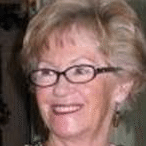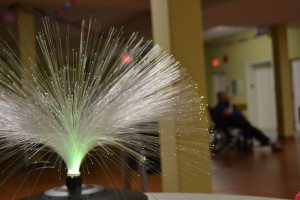Sandie Ravenhill took her nurses training in Whitehorse, Yukon in 1972. At that time she was classified as a Certified Nursing Assistant. Her time in northern nursing took her to facilities in Whitehorse, Watson Lake, and Fort Nelson. When she left the Yukon she went to work for We Care in Nanaimo. This was her first experience working with seniors.

“I knew right away that this was the perfect fit for me. I also knew that there was much more to learn about the many effects of aging: not just physical, but social, emotional, and spiritual. I took the LPN refresher course through Open Learning; which had a comprehensive component on long term care. My preceptorship was at a retirement facility in Nanaimo… and I’ve never looked back… 13 years later!”
“What is rewarding to me is that just by showing kindness I get so much back. I feel good every day because I know that I have made a difference in someone’s daily life.”
As a Licensed Practical Nurse in the province of British Columbia she has taken additional training establishing wound prevention and/or treatment protocols. Sandie has acted in a leading role for the past six years in this area to provide support and leadership at the Haven Hill Retirement Centre in Penticton. Other areas of ongoing training are Palliative Care nursing and Dementia training.
Sandie’s job is essentially to address the medical and physical needs of the residents as directed by their doctors. However, there are many other influences to consider. Family, or lack of family, is critical. Residents who have no other contact are especially at risk to the effects of loneliness, depression, anxiety, and agitation. Sandie finds that touch, kindness, and laughter are most effective at combating these effects.[quote name=”Sandie Ravenhill, Licensed Practical Nurse” pull=”right”]What is rewarding to me is that just by showing kindness I get so much back[/quote]
Sandie begins each day by outlining what priority care issues need to be addressed, and she plans her time accordingly. Throughout the day there may be many unplanned events thrown her way – that’s part of the job – and she helps where she can. She may be called upon to assess a wound, help with a hospital transfer, assess a fall, etc. So as the day progresses she returns to the regular plan several times. A typical day consists of two medication passes for 41 residents, providing communication with and support to doctors, direct care staff, and families, admissions and discharges, passing on information to her supervisor… and maybe have a little lunch!
Mentoring is an important part of Sandie’s professional responsibility. It is included in her daily routine. She finds that new nurses are especially keen to learn from experienced nurses. She has found her approach to share technique or information is much appreciated by those starting their career in nursing. She feels that for a new nurse this is a wonderful place to start their career; as they will experience a broad range of resident needs including Complex Care, Dementia and Acquired Brain Injury, and Palliative Care. As well this past year, Sandie preceptored a return to work RN for her long term care component. 
Sandie’s role model for many years has been her previous https://bccare.ca/wp-content/uploads/2022/08/medcare-img22.jpgistrator Jane Tench. “The energy, enthusiasm, and drive she brought to work every day always amazed me. She was strong and tough, but compassionate and caring. She acknowledged everyone who walked through the door. She knew the names of every employee’s children. At the end of her day, which always ended late, she would return to her community and volunteer for one of her many charities.”
There are challenges in her job mainly because of the workload. It can be heavy, more so for the care staff, but as they work as a team they are all affected. She feels her management continues to support the staff with their endeavors to create more workable routines and shifts. Hiring of staff is ongoing. However, more money in this area would make a difference. Sandie believes that the industry is doing a good job recruiting health care workers. Training and educational programs are plentiful. The difficulty Sandie sees in the field is burnout. There does not seem to be enough money to enable the facility operators to increase staff to resident ratio. This is an unfortunate aspect of what has otherwise been an exciting and rewarding career.
Sandie had always wanted to be a nurse. In high school she volunteered at the local nursing home. Her first job was a “ward aide” at the King George Private Hospital in Surrey.
“I have had many careers and in the end I went back to my career of choice – nursing. As I approach the end of my working career, I leave knowing that I have made a difference in the lives of those left in my care.”
– Written by freelance writer Cathy Szmaus for the Seniors Care HR Planning Committee. Funding for this project was provided by the Canada-British Columbia Labour Market Development Agreement




